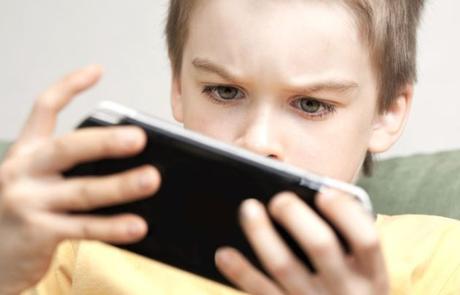Can families feel safe in the realities of online risks the Internet hosts? Adults can handle the tendency of a massive online exposure and its consequences. What about kids? Let's find out 5 child online activities that can threaten the kid as well as the whole family's safety.
Keeping Your Child Safe on the Internet

Sexting is not a thing for adults anymore. At the educational conference in London, Mandy Saligari, director of the Harley Street Сlinic, expressed concern on the number of teens (13-14-year-old) involved in sexting. They find it normal to send or to receive pornographic photos or access adult content online.
For the record, sexting is sharing and storing sexually explicit material (photos, videos) online via electronic devices.
The United States House of Representatives has adopted a bill criminalizing "sexting" among teenagers. Their parents can end up in jail with a 15-year mandatory. The same legislative processes are proceeding in the UK and Australia.

People, involved in child sexting, participate in the child pornography and might be accused of its possession, dissemination, and production.
Malory Grossman, a 12-year-old girl from New Jersey, killed herself after being cyberbullied for 9 months by the group of girls. They used Instagram and Snapchat to insult her. Malory reached out to school administration concerning the issue but they did nothing to protect her. The Grossman family sued the school district and also wants the bullies to be accountable for their daughter's suicide.
Unfortunately, Amanda Todd, Ryan Halligan, Megan Meier, Jessica Logan and many others joined the list of cyberbullying victims who committed suicide. Their families will never be the same.
Besides suicide, cyberbullying may result in:
- Depression, anxiety, despair.
- Irritation and nervousness.
- Social isolation
- Insomnia
- Law self-esteem and self-doubt.
If depression got its late fetal development, parents should turn to the Child and Adolescent Mental Health Services.
A child might be a victim as well as a bully. In both cases, cyberbullying is destructive for the whole family.
3) Contacts with online predators
According to ipredator.co, online predators are adult online users who fish for kids to exploit them for sexual or abusive purposes. They use the Internet for that. It all starts with the communication with people under fake profiles on social media.
In 2012 Amanda Todd took her life because of being cyberbullied by an unknown person on Facebook. First, he said she was beautiful, made her send him a topless body photo, then it went public online. The Canadian police found out it was a 35-year-old man who was also involved in other abuse cases like online luring and child pornography.
Experts say these people are depraved, sick, have some type of mental abnormality or personality disorder. Their relationships with kids are inappropriate, unhealthy, and toxic.
The new social experiment, led by Coby Persin, a famous YouTube v-blogger, in partnership with mSpy parental control app showed how exactly online predators operated via social media. Despite parents' warning, all kids fall for online predators' luring to meet in person.
In order to protect their kids on the Internet, parents should be vigilant about the channels these people use to reach out to children.
4) Participation in dangerous online games
Vulnerable kids are more likely to get into a dangerous online game. These could be kids who are suffering from parents' divorce or being through a tough time in their family's life. The agents of such are looking for this particular kind of children. They recruit them easily and threaten to hurt the family if kids want to leave the game or expose it.

Thus, the Blue Whale Challenge, the most dangerous online game, took lives of over 130 children around the world. Its mission is to "cleanse the society from bio rubbish". The game contains 50 dangerous tasks, each of them is harder than the previous one (listen to heavy metal at 4 AM; carve themselves, watch horrors). The last assignment is to commit suicide in live streaming.
The Internet is full of such games: for example, the flatliner, the knockout, the car surfing or salt challenges. All of them menace the child's sanity, safety, and life. Their families are at risk of losing a child or dealing with psychiatric consequences of such participation.
A porn industry is searching for expansion and reaching out to a new audience. Advertisers search for cheap platforms and meanwhile provide mainstream media channels to a porn industry. Thus, there's the risk for a kid to face an adult site' ad when looking for a site with cartoons. Moreover, misspelling in URL might lead to a porn site as well.
This means that a simple surfing online can lead to a site you would never approve as a parent. The web, if not controlled and filtered, can really turn into an unhealthy source of information for your kid.
6) Can parents prevent these online activities?
The simple ongoing action plan will help find the most convenient solution. Here's what you can do:
- First, identify the problem. Ask yourself:
- How much time does my kid spend on the Internet?
- Does my child have social media accounts and where exactly?
- Does she or he use Snapchat or Instagram's live streaming?
If so, does my kid disable the location option (strangers can identify the kid's whereabouts with this option)?
After identifying that there is actually a problem, think how you can start dwelling on this topic with your kid and implementing some restrictions on the Internet usage.
- Raise your personal awareness by reading expert articles, particularly with the examples of a successful experience.
- Find your "tech" way to protect your kid and your family from online risks. This is where parental control apps come in handy. There are multiple parental controls on the market: , , ESET family, etc. Parents can pick the one that meets the most their family's needs.
A decade ago, the family's safety was about a physical one. Now, it has undergone changes due to the tech and web's integration into people's lives. Thus, to assure a complete security, family members need to tackle the online protection.

